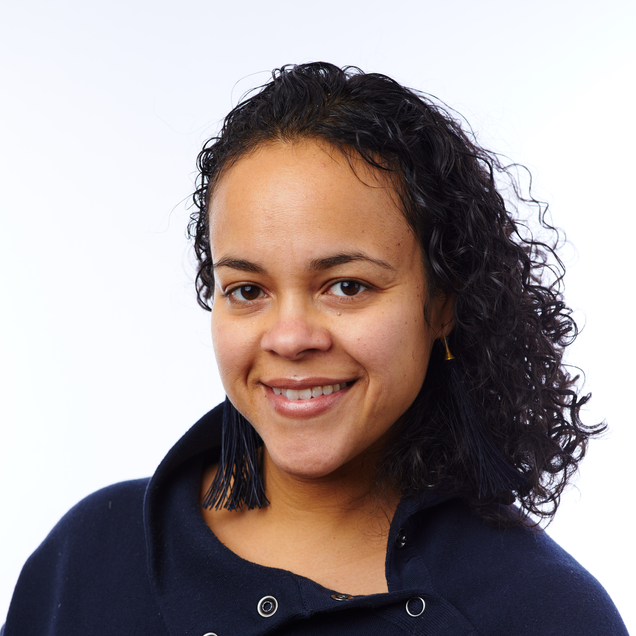Professor Leanne Yinusa-Nyahkoon Named Inaugural MACE Fellow
 Clinical Assistant Professor in the Department of Occupational Therapy Leanne Yinusa-Nyahkoon has been awarded an inaugural MACE Foundation Fellowship which supports critically-needed research opportunities for Black, Brown, and Indigenous female research scientists, medical doctors, and other healthcare professionals, whose research focus is American Black, Brown, and Indigenous women’s physical and maternal health, maternal mortality, and the health of their babies.
Clinical Assistant Professor in the Department of Occupational Therapy Leanne Yinusa-Nyahkoon has been awarded an inaugural MACE Foundation Fellowship which supports critically-needed research opportunities for Black, Brown, and Indigenous female research scientists, medical doctors, and other healthcare professionals, whose research focus is American Black, Brown, and Indigenous women’s physical and maternal health, maternal mortality, and the health of their babies.
Yinusa-Nyahkoon’s Fellowship funding will support the MOTHERS (Moving Occupational Therapy and Health Equity into Reproductive-Care Systems) Program which aims to change the narrative and norms of reproductive care for Black mothers. Black women across age groups and educational levels in the US are at least four times more likely to have pregnancy-related deaths than women of any other racial or ethnic group, and experience the highest rates of preterm birth, low birth weight, and infant mortality. The MOTHERS Program will address prevention, intervention, and development of strategies, solutions, and policies that mitigate the disproportionate maternal mortality rates and adverse birth outcomes among Black women.
“These disparities have persisted for decades, and therefore, we must reimagine and reinvent how we approach reproductive care,” said Yinusa-Nyahkoon. “This program has the potential to impact reproductive care service delivery, emerging models of interprofessional practice, maternal and child health policies, and health outcomes for Black mothers and their children.”
Yinusa-Nyahkoon’s broad body of research focuses on examining health disparities that affect urban communities of color and the clients’, families’, providers’, and community’s perspectives of the inequities that impact health behavior and illness management. Her current funded research projects include Using Innovative Communication Technology to Improve the Health of Young African American and Black Women: The Gabby System. The Gabby System is a web-based health education system designed for young Black women that uses an embodied conversational agent to assess 150 preconception health needs, and deliver evidence-based interventions to facilitate health behavior change. Yinusa-Nyahkoon and her interprofessional research team are currently implementing the Gabby System at Healthy Start sites and community health centers across the United States. Yinusa-Nyahkoon’s research interests also include interprofessional care. As a qualitative expert, she is currently participating in a research project “Boston University Community Health Alliance of Medical Professionals” (BU CHAMPs) and is examining clients’, health professional trainees’, and health care providers’ perceptions of the interprofessional care experience within urban medical centers.
As a next step in the MOTHERS Program, Yinusa-Nyahkoon and her research team will integrate occupational therapy (OT) services into primary reproductive care and collaborate with reproductive care providers to implement an interprofessional reproductive care model tailored to the unique needs and assets of Black mothers. OT practitioners have a unique skill set to adapt clients’ activities and environments to support their daily functioning especially as routines and abilities may change as pregnancy progresses and the post-partum period begins. In addition, OTs have extensive knowledge about infant development and milestones, which is vital information for Black women prior to and after delivery, as they are at an increased risk for adverse birth outcomes.
“The MACE Foundation is confident the projects of these fellows will yield positive and transformative results in the development of strategies, solutions and policies in prevention and intervention that mitigate the disproportionate maternal mortality rates for Black women,” said MACE Foundation Founder Dr. Sharon W. Cooper.
Yinusa-Nyahkoon is one of two inaugural MACE Fellows. Tejumola Adegoke, assistant professor of obstetrics & gynecology at the Boston University School of Medicine, was also selected as a Fellow for her RESTORE (Reproductive Sexual Gynecologic Health Community Partnership) project which aims to assemble a permanent patient advisory board for the Department of Obstetrics & Gynecology at Boston Medical Center.
MACE Fellows have the opportunity to make a significant contribution to the advancement of Black women’s health and wellness and reduction in maternal mortality. Specifically, projects have the potential to yield positive and transformative results in the development of strategies, solutions, and policies in prevention and intervention that mitigate the disproportionate maternal mortality rates for Black women. Fellows are provided financial support, professional mentorship, networking opportunities and training resources within two United States Military Medical Centers and or Veteran Centers and/or other higher learning academic institutions.